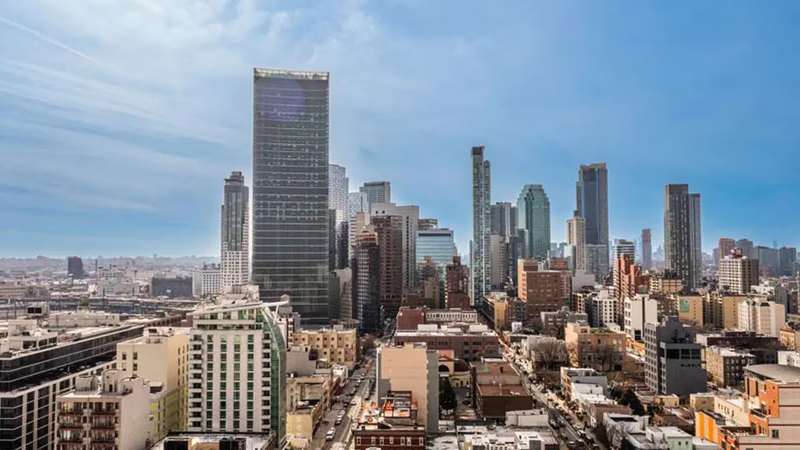
Lebanon"s real estate market attracts Arab investors seeking opportunities. "
Lebanon has historical and cultural connections with many Arab countries. Arab capitalists may be drawn to Lebanon due to shared language, cultural familiarity, and historical links, which can create a sense of affinity and comfort for investment purposes. Lebanon's real estate market, particularly in cities like Beirut, has traditionally been attractive to investors. The country's unique geography, scenic landscapes, and diverse architectural heritage have made it a sought-after destination for luxury properties and vacation homes.
Lebanon offers a unique lifestyle and cultural experience, which can be appealing to Arab investors seeking a cosmopolitan environment with a mix of Western and Middle Eastern influences. The country's culinary scene, nightlife, and vibrant social atmosphere contribute to its allure. It is important to note that the interest of Arab capitalists, like any other investors, can be influenced by multiple factors, and the attractiveness of the Lebanese real estate market is subject to changes in the country's economic and political environment. It is advisable for potential investors to conduct thorough market research, seek professional advice, and consider the specific circumstances and risks associated with investing in Lebanon before making any decisions.
The third place in the Asian real estate index list is assigned to Lebanon with an average of 3,693 dollars per square meter. Despite the instabilities in the housing sector of the Middle East region, Arab investors still consider the Lebanese housing market to be the most suitable place for investment and have a great desire to obtain investment opportunities in the Lebanese housing market. Real estate prices are different in every city and village, that is, the top of the village is different from the bottom. The land near the main road is different from the land away from the main road.
Some Arab investors may see Lebanon's real estate market as a potential source of high returns on investment. They may acquire properties with the intention of generating rental income or selling them at a profit in the future. Lebanon has a significant diaspora population residing in various Arab countries. Arab capitalists who are part of the Lebanese diaspora may have a personal connection to the country and invest in property as a means of maintaining ties or as a long-term investment for potential return or family use.
The investment of Arab countries in the Lebanese housing market is increasing significantly, and it is necessary to provide suitable conditions to help increase the awareness of Kuwaiti investors about the rules and regulations of the housing market in Lebanon. The price of a one- or two-story house in Beirut is very, very high, and only wealthy businessmen and officials can afford such houses. Or if the house is very old and hasn't been touched since the last fifty or sixty years, and apartments have been built all around it.
There are offices for pricing for buying and selling property in Lebanon and for registration and taxation. These offices estimate the price of the property. For example, if someone wants to get a mortgage, in addition to other documents, he must get a price sheet from these offices. But the real price of buying or renting is very different from this amount. One of the best investment markets is real estate, whose market stability has increased the demand for investment in areas such as low-cost family housing or executive residences.
Lebanon has a rich cultural heritage and is known for its vibrant tourism and hospitality sector. Arab capitalists may invest in properties such as hotels, resorts, and vacation rentals to capitalize on the potential for tourism and hospitality-related business opportunities. Lebanon's economic challenges, including currency fluctuations, inflation, and political instability in recent years, have led to a depreciation of property values. Arab capitalists may view this as an opportunity to acquire properties at relatively lower prices with the expectation of future value appreciation.
-
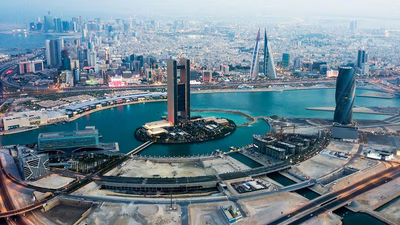
Bahrain permits foreign nationals to purchase property in designated freehold zones, such as Amwaj Islands and Durrat Al Bahrain, offering full ownership rights. Outside these zones, properties can be acquired on a leasehold basis for up to 99 years. Conducting market research is essential before investing, focusing on property prices, rental yields, and future development plans. Foreign investors may benefit from residency or citizenship through various schemes linked to property ownership. The average housing price in central Bahrain is approximately $2,790 per square meter, while outside the city it drops to around $1,800 per square meter. In 2022, foreign interest in Bahraini real estate surged to its highest level since 2014, driven by favorable investment conditions. The country’s economy is diversifying beyond oil into banking and processing industries. Mortgage financing options are available from local and international banks with competitive terms.
Legal due diligence is crucial when purchasing property; hiring a qualified lawyer can help navigate the complexities of real estate transactions. Bahrain"s property market offers diverse options including apartments, villas, and commercial spaces catering to various budgets. "
-
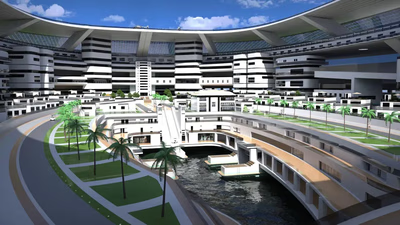
Real estate investment funds in Saudi Arabia are regulated vehicles that pool capital from multiple investors to invest in diverse income-generating properties. Governed by the Saudi Capital Market Authority (CMA), these funds can invest in residential, commercial, industrial, and hospitality assets, as well as real estate development projects. Recent regulations allow foreign investors to participate in funds specifically for properties in Mecca and Medina, aligning with Saudi Arabia"s goal to diversify its economy away from oil dependency. The government aims to increase homeownership among citizens to 70% by 2030, creating a favorable environment for real estate investments. These funds offer benefits such as diversification, professional management, liquidity through stock exchange trading, and potential tax advantages. The average housing price is $1,174 per square meter in city centers and $864 outside them. Analysts predict significant residential unit construction in Riyadh and Jeddah between 2019 and 2021, with expectations of stabilizing housing prices due to increased economic activity. The Public Investment Fund has also launched a national real estate registration service to enhance transparency and trust within the sector.
Investors can access these funds through brokerage firms or financial institutions, making them available for both individual and institutional investors. "
-
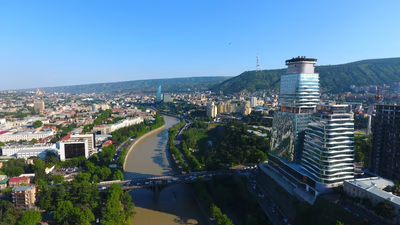
The real estate markets in Tbilisi and Batumi, Georgia, have shown notable growth, attracting both local and international investors. Tbilisi has experienced a surge in demand for residential properties due to urbanization and rising incomes, with a significant increase in transactions—26% year-over-year—resulting in a market volume of $190 million. The commercial sector is also thriving, driven by a favorable business environment and tourism growth. Conversely, Batumi"s market has faced challenges, with a 7. 4% decline in sales attributed to its reliance on foreign buyers and tourism. Despite this downturn, Batumi remains appealing for vacation homes and offers high rental yields. The Georgian government has implemented reforms to attract foreign investment, including tax exemptions for property buyers and simplified ownership registration processes. These initiatives have made Georgia"s real estate market attractive due to its affordability compared to other international markets.
-
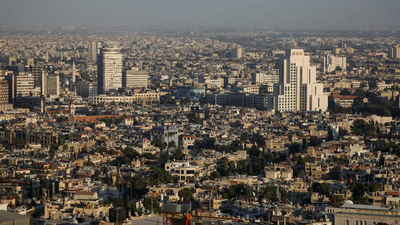
Syria"s reconstruction period is anticipated to commence following a significant reduction in conflict, with varying timelines across regions. The construction sector, once a key economic driver, has suffered extensive damage due to the civil war, impacting residential and commercial infrastructure. Prior to the conflict, Syria"s housing market was robust, with average prices of $1,800 per square meter in city centers. However, the devaluation of the Syrian lira and low wages have made homeownership challenging for many young people. Currently, Iranian companies are active in construction projects within Syria. The reconstruction process will necessitate substantial financial investment and international support while addressing security concerns and legal complexities. Notably, countries like Qatar and the UAE are showing interest in investing in Syria"s rebuilding efforts. The Syrian Ministry of Public Services and Housing is overseeing planning for reconstruction in various regions.
As stability returns, the focus will shift from emergency relief to comprehensive rebuilding efforts aimed at restoring infrastructure and essential services. "
-
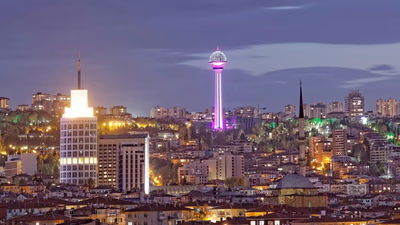
Turkey"s strategic location between Europe and Asia makes it an attractive destination for real estate investment. The country has seen significant economic growth, supported by a large domestic market and a skilled workforce. Infrastructure investments, including transportation and urban regeneration, enhance the appeal of the real estate sector. The Turkish government offers incentives for foreign investors, such as tax benefits and streamlined property ownership processes. With average housing prices around $733 per square meter in cities and $437 in rural areas, Turkey presents affordable options compared to other markets. The demand for rental properties is bolstered by tourism, particularly in cities like Istanbul and Antalya. Additionally, the Citizenship by Investment program allows foreign investors to gain Turkish citizenship through real estate purchases, providing further incentives. Arab nationals are among the top foreign buyers, with Iranians leading the market.
While investing in Turkish real estate can be profitable, thorough research is essential to identify suitable locations and property types. Commercial properties typically yield higher returns but require more maintenance than residential options. Turkey"s growing population and urbanization trends indicate a rising demand for both housing and commercial spaces, presenting numerous opportunities for investors.
-
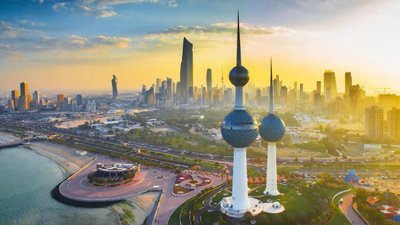
Kuwait"s infrastructure development is pivotal for real estate growth, supported by a robust transportation network, including highways and an upgraded Kuwait International Airport. The average housing price in urban areas is $6,941 per square meter, while suburban properties are priced at $3,174 per square meter. Islamic banks play a significant role in financing real estate projects, benefiting from reduced costs compared to conventional banks. Major urban projects like Madinat Al Hareer and Sabah Al Ahmad Sea City reflect the government"s commitment to meet rising demand for residential and commercial spaces. Kuwait"s low tax environment attracts investors across various sectors, including banking and tourism. The government is also focused on smart city initiatives to enhance digital connectivity and sustainability. Public amenities such as parks and healthcare facilities are being developed alongside improvements in public transport systems. Additionally, Kuwait"s ports are crucial for trade logistics, having undergone modernization to accommodate larger cargo volumes.
Overall, the country"s strategic investments in infrastructure aim to improve livability and attract further investment in the real estate sector. "
-
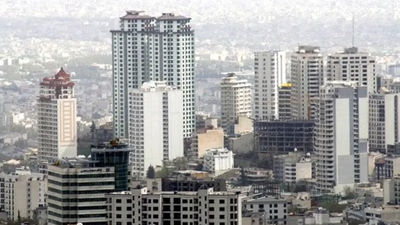
Foreign ownership regulations in Asia"s real estate market vary significantly, with countries like Singapore and Hong Kong offering more liberal policies. In contrast, some nations impose restrictions or require local partnerships. The market features diverse property types, including residential, commercial, and industrial options. Emerging markets such as Vietnam and Indonesia are experiencing growth due to favorable demographics and rising foreign investment. However, the region faces challenges like economic volatility and geopolitical events that can impact property prices and demand. Notably, Hong Kong has the highest property price-to-income ratio in Asia, followed by Sri Lanka and Iran. Urbanization, population growth, and tourism drive demand for real estate across the continent. Trends towards sustainable buildings are emerging alongside luxury developments and affordable housing initiatives.
Buyers must navigate local customs, legal systems, and market fluctuations to make informed decisions. Major cities like Tokyo and Shanghai remain attractive for investment despite recent downturns in markets like China’s housing sector. "
-

Arab capitalists are increasingly interested in Lebanon"s real estate market due to historical ties, cultural familiarity, and the potential for high returns on investment. The Lebanese market, particularly in cities like Beirut, offers a unique blend of Western and Middle Eastern influences, appealing to investors seeking luxury properties and vacation homes. Despite economic challenges such as currency fluctuations and political instability, many Arab investors view the current depreciation of property values as an opportunity for future appreciation. The diverse real estate options range from high-end luxury homes to low-cost family housing, catering to various investment strategies. Additionally, the significant Lebanese diaspora may drive interest as they seek to maintain connections through property investments. However, potential investors are advised to conduct thorough market research and understand local regulations before proceeding. The demand for properties in Lebanon remains strong despite regional instabilities, with Arab capitalists viewing it as a prime location for investment. "
-
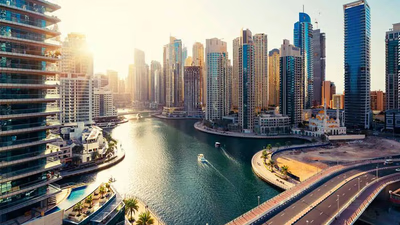
The real estate market in Arab countries has seen substantial growth due to rising population and urbanization, leading to increased demand for various property types. Major cities and tourist destinations are particularly attractive for foreign investment, with a diverse range of residential, commercial, and industrial properties available. Each country has unique regulations governing property transactions, including registration, zoning, and taxes. Economic factors such as oil prices and political stability significantly influence market dynamics. Notably, the UAE, Saudi Arabia, and Egypt have thriving tourism sectors that drive the development of hotels and vacation properties. The real estate sector"s structure differs from the stock market; while luxury property prices may drop quickly during downturns, ordinary real estate remains resilient due to ongoing population growth in the Gulf region. Recent improvements in the sector are expected to continue as infrastructure investments enhance urban development. Foreign ownership regulations vary across countries; some allow full ownership in designated areas while others impose restrictions requiring local partnerships.
Overall, the Arab real estate market presents opportunities for investors seeking stable returns amidst regional economic fluctuations. "
-
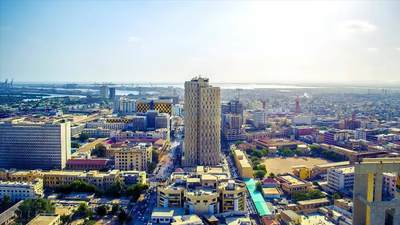
Inflation significantly impacts Pakistan"s real estate market by increasing property prices due to rising costs of construction materials and labor. As inflation reduces purchasing power, potential homebuyers face challenges in affording properties, leading to decreased demand and slower market activity. Despite nominal price increases, real housing prices have fallen, indicating a complex market dynamic. The government aims to address housing shortages by providing financial support for low-income families, yet housing finance remains low compared to other countries. Inflation also affects rental prices as property owners adjust rates to cover rising expenses. Investors may view real estate as a hedge against inflation, but high rates can create uncertainty and cautious investment behavior. The growth of proptech firms like Zameen highlights the potential for innovation in the sector, which has been historically neglected. Overall, while inflation poses challenges, it also presents opportunities for strategic investment and development in Pakistan"s real estate landscape.
-
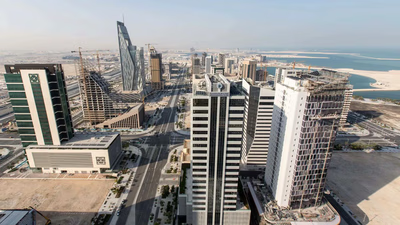
Lusail City, a major real estate project in Qatar, aims to create a self-sustaining urban environment with residential, commercial, and entertainment facilities. The centerpiece is the Lusail Iconic Stadium, set to host the 2022 FIFA World Cup final. West Bay Lagoon offers luxury waterfront living with villas and apartments alongside private beaches and retail options. Education City is another significant initiative, housing international universities and promoting research collaboration. Al Rayyan Sports City enhances Qatar"s sports infrastructure with training facilities and hotels. A report from Qatar"s Ministry of Justice highlights property circulation in key municipalities, indicating a surge in occupancy rates due to World Cup preparations. The real estate market saw transactions worth $5. 5 billion in 2022, attracting investors keen on luxury properties despite restrictions on foreign ownership.
Msheireb Downtown Doha revitalizes the historic district with mixed-use developments that blend heritage and modernity. The Pearl-Qatar is an artificial island offering high-end residential and commercial spaces inspired by Mediterranean architecture.
-
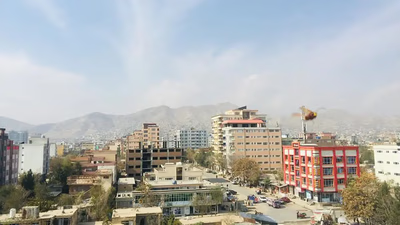
Afghanistan"s housing market is characterized by limited formal structures, particularly in rural areas where many properties lack legal documentation. Rapid urbanization and population growth have intensified demand in cities like Kabul, Herat, and Mazar-i-Sharif, leading to soaring property prices and rental rates. The average price for housing in city centers is $785 per square meter, while outside urban areas it drops to $373. The rental market plays a crucial role, with prices varying based on location and demand. The Afghan government has initiated efforts to formalize land ownership and promote affordable housing projects amidst ongoing security challenges that impact property values and investment decisions. International organizations contribute significantly to improving housing conditions through various development projects. However, the high cost of housing remains disproportionate to the average income of Afghans, with a 3-room house requiring approximately $20,000. Informal settlements are widespread, often lacking essential services like water and electricity, which poses significant challenges for residents.
Additionally, the construction sector struggles with quality control and adherence to safety standards, raising concerns about the durability of many properties. "
-

Armenia"s urban development focuses on modernizing housing infrastructure, particularly in Yerevan, where high-rise apartments are becoming prevalent. These developments aim to accommodate the growing population while adhering to higher quality and design standards. Modern construction techniques and materials are being utilized to enhance durability and energy efficiency. The Armenian government encourages foreign investment in real estate, offering residency options through property purchases with minimal capital requirements. The absence of taxes on real estate transactions for foreigners and the ability to own property outright make Armenia an attractive investment destination. Additionally, initiatives supporting affordable housing aim to address challenges faced by low-income families. Mixed-use developments are gaining traction, providing residents with convenient access to amenities while promoting sustainable living practices. Infrastructure improvements in transportation and utilities further enhance the living experience in residential areas. "
-
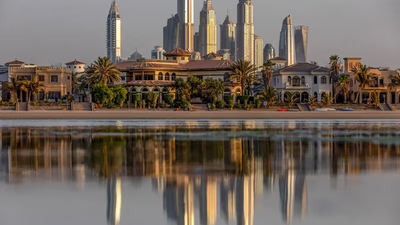
The UAE"s luxury real estate market features iconic developments like Palm Jumeirah and Burj Khalifa, attracting global investors with high-end properties and amenities. The market offers a variety of upscale residential options, including villas, penthouses, and serviced apartments, often located in gated communities. Waterfront properties provide exclusive lifestyles with private marinas and beach clubs. Despite a recession in 2020, the market rebounded due to reduced restrictions, leading to increased sales of luxury units. However, concerns about oversupply and fragile growth persist. The UAE"s favorable tax regime, stable economy, and strategic location enhance its appeal for investment. Luxury hotel residences offer a blend of privacy and five-star services, while luxury-focused neighborhoods provide extensive amenities such as golf courses and fine dining. The average real estate price stands at $5,918 per square meter, making it an attractive option for affluent buyers seeking high returns.
-
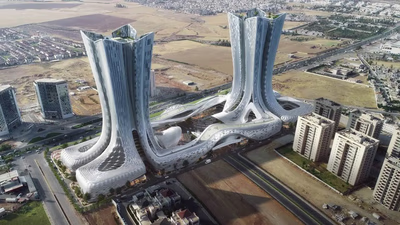
The Iraqi real estate market is experiencing a surge in demand, particularly in cities like Baghdad, Erbil, and Sulaymaniyah. Despite ongoing political instability, expectations for rising property prices are fueled by government infrastructure investments and an influx of foreign capital. The average price for properties in city centers is around $1,896 per square meter, while those outside the city average $875 per square meter. Wealthy individuals are increasingly investing locally due to sanctions limiting their options abroad. This trend has led to price increases in surrounding areas such as Fallujah and Ramadi. The market faces challenges from high unemployment and poverty levels, which affect purchasing power. However, with a growing population requiring an estimated 3. 5 million residential units and 250,000 new housing units needed annually, the demand continues to rise.
Local administrations are issuing investment permits to stimulate construction and address the housing crisis. As security improves and economic conditions stabilize, the real estate sector is poised for further growth.















